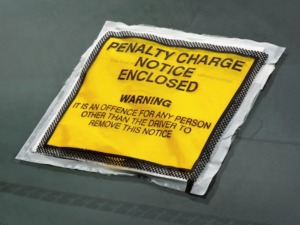New private parking rules withdrawn on back of legal challenges
New rules drafted for the private parking sector to protect drivers have now been withdrawn on the back of legal challenges from parking firms.

Data for the first six months of the 2021/22 financial year shows private parking firms requested 4 million sets of records from the DVLA
The draft code was published in February 2022 as part of the Parking (Code of Practice) Act 2019 and was designed to end some of the worst practices in the private parking sector.
The Code of Practice set out minimum standards expected of private parking operators and capped the amounts that could be charged for various parking infringements, cutting it for the most part from £100 to £50. A national appeals system and an industry scrutiny board were also planned and all changes were due on board by the end of 2023 latest.
Speaking at the time, the RAC said the proposals should root out the “more dubious practices” that have been prevalent by some operators in the sector.
But the Department for Levelling Up Housing and Communities (DLUHC) has now temporarily withdrawn the code in respect of two legal challenges to the plans to cap the penalty charges and the Government has accepted that it needs to set out formally its analysis of the implications of these limits on business in an impact assessment.
The RAC said it was “deeply disappointing” that the code had been temporarily withdrawn, which would almost certainly bring more delays to its introduction.
Head of roads policy Nicholas Lyes continued: “The fact that parking companies take issue with the capping of charge notices and debt recovery fees shows precisely why both the code and the cap are needed. For too long, some companies have been allowed to prey mercilessly on drivers who might make an honest mistake and then have to face both over-zealous enforcement and threatening debt recovery letters. The Government must stand up to these companies and get the code over the line so we finally have fair and transparent enforcement in the private parking sector.”
Data from the RAC Foundation for the 2019/20 financial year has revealed that private parking firms requested a record 8.4 million sets of vehicle keeper data from the DVLA – potentially enabling as many as 16 penalties to be issued every minute, 24/7.
And while the figure fell to 4.4 million sets of records in 2020/21 due to the pandemic, data for the first six months of the 2021/22 financial year shows parking firms accessed 4 million sets of records, indicating that ticketing is almost back to pre-pandemic levels.
Several parking companies have now begun legal action, not only looking to retain the maximum parking charge notice rate of £100 but to actually increase it to £120, as they said a reduction would lead to more drivers breaking the rules.
Steve Gooding, director of the RAC Foundation, said: “Can it really be the case that more than eight million drivers set out knowingly to risk a penalty currently of up to £100, or is the vast number of keeper detail requests from private parking companies evidence of a system that is crying out for reform?
“Surely the ideal would be for no-one to infringe the parking rules, intentionally or otherwise, yet the private parking industry’s determination to fight over the level of charges suggests that this would fundamentally undermine a business model that’s dependent on penalty income – how can that be right?”
He added: “Frankly players in the private parking industry might yet come to regret challenging the plans to reduce the caps on parking charges because the evidence could well lead ministers to conclude they were previously being too generous.”
A DLUHC spokesperson also commented on the legal challenges to the code: “We’re determined to end rip-off parking practices, and it’s very disappointing that some in the parking industry are resisting this.
“We will continue to work with industry and consumer groups to introduce our new Parking Code of Practice as quickly as possible.”












